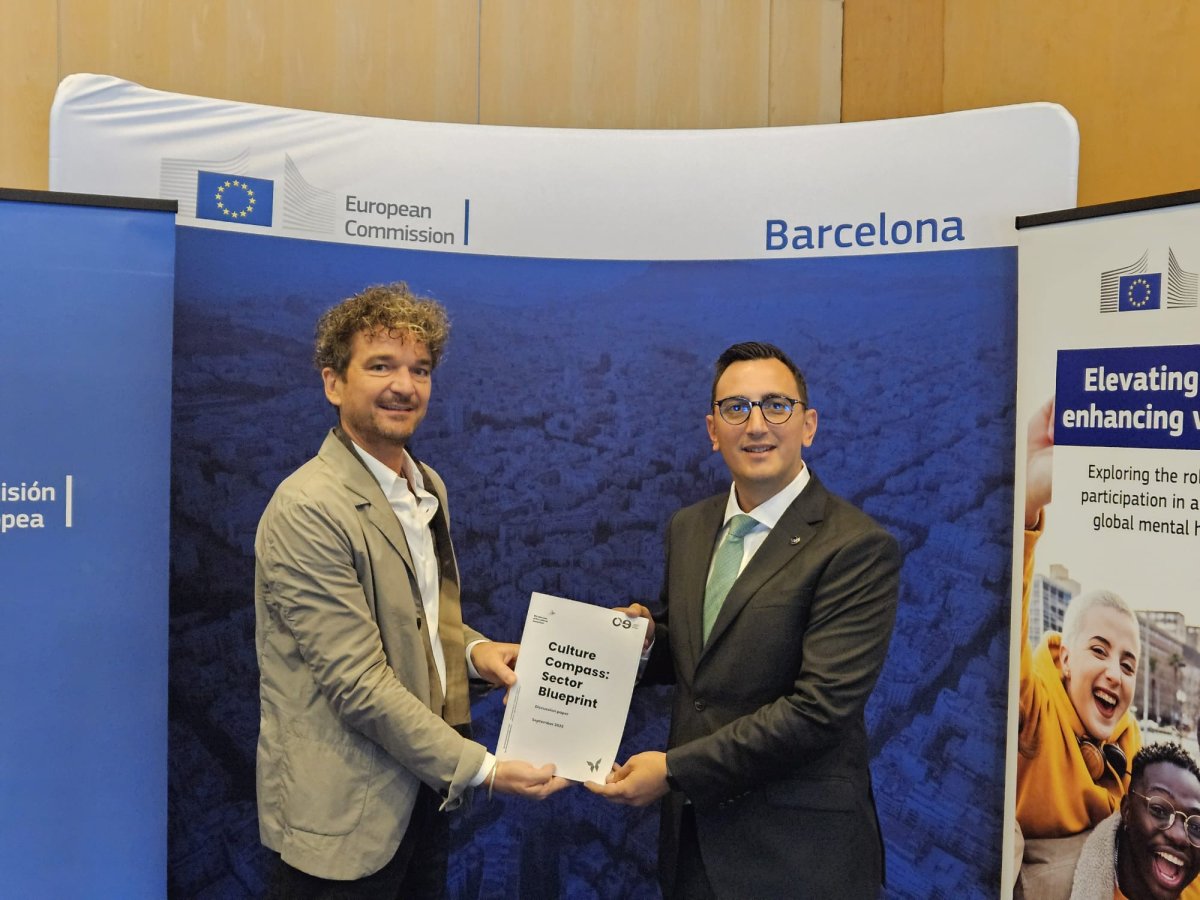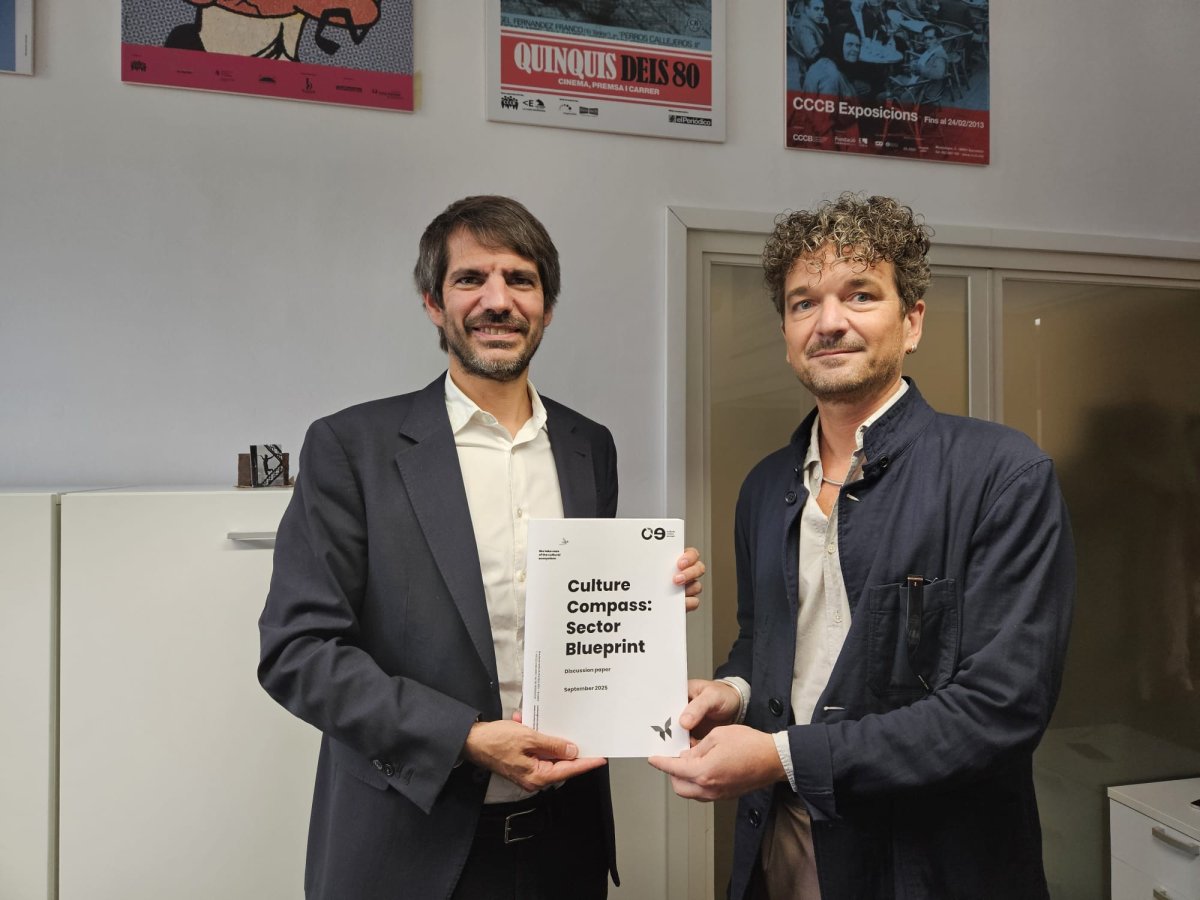The discussion paper ‘Sector Blueprint: Towards a Culture Compass for Europe’ is out and the CCS are getting organised, also ahead of negotiations on MFF 2028-2034 and the proposed AgoraEU. CU talked with Culture Action Europe’s Lars Ebert on highlights and background, in a critical view of the overall context shaping and/or challenging the future of culture in EU policy.
CU: What is the key message of the Blueprint?
The first message is to establish culture as a foundational principle of our societies and our civic space that enables people to create meaning and relate to others. It enables individual and community well-being. Secondly, it’s about culture and democracy, as it is through culture that we can imagine our future and, while becoming co-creators of our tomorrow’s society, be actively engaged in our democracy. The third part is the transversal role of culture to other areas, health, the digital agenda, resilience, sustainability and you name it.
CU: Why publish the Blueprint now and what are your expectations?
We chose to be pre-emptive, not because we are necessarily afraid that it could go utterly wrong, but because we realise that expectations are so high and that various players in the cultural ecosystem have very specific ideas about very specific issues, some of which with extreme urgency, such as artistic freedom and artificial intelligence.
We are actually being proactive and at the same time, collaborative, while establishing practices that strengthen the sector’s unity.
Let me provide some background. The Commission proposed a Culture Compass to replace the previous New Agenda for Culture, which was issued in 2018. The Council’s Work Plan for Culture also ends next year and needs to be renewed. The Compass was already included in Commissioner Micallef’s mission letter and he started with an ambitious plan and schedule, aiming not only to replace the previous strategy but also to come up with an instrument connecting culture with other policy areas in a transversal manner.
We are actually being proactive and at the same time, collaborative, while establishing practices that strengthen the sector’s unity.
The sector welcomed this ambitious plan and actively participated in the Commission’s whole schedule of consultations. One crucial moment was the high-level stakeholders meeting organised by the Commission in March 2025. This meeting was framed by very strong statements by all three EU institutions, the Commission, the Parliament and the Council’s Polish Presidency at the moment, and even a commitment to come up with a joint declaration for culture, understood as linked with the Compass, which was announced to be presented by the Commission to the Council meeting in November. There were also opportunities for written input from the sector.
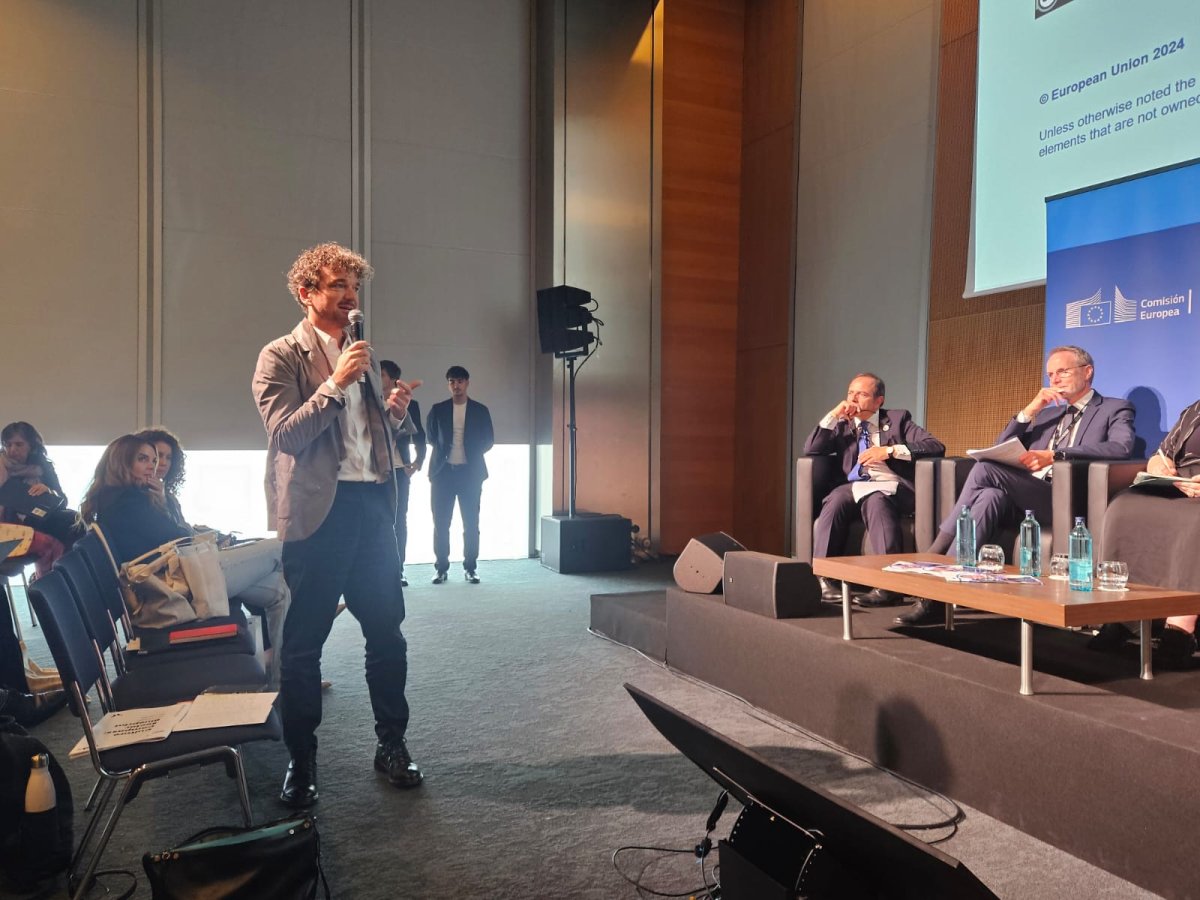 We came together with our members in June in Turin, and since then, we got into deep conversations to shape and integrate what we want as a very diverse sector. More than 30 transeuropean network members of CAE have worked together, innovating our approach as we take the initiative to propose to the Commission our positions on the issues that we share as most urgent, instead of simply reacting to the Commission's work.
We came together with our members in June in Turin, and since then, we got into deep conversations to shape and integrate what we want as a very diverse sector. More than 30 transeuropean network members of CAE have worked together, innovating our approach as we take the initiative to propose to the Commission our positions on the issues that we share as most urgent, instead of simply reacting to the Commission's work.
Overall, over the past two years CAE has really pushed forward to unite the sector’s plurality of voices into a complementary advocacy ecosystem. We are now reaching out to deepen our collaboration with representatives from the audiovisual, the news sector and civil society. It is very important to grow our partnerships especially in the light of the proposed AgoraEU funding programme for culture that brings together the arts, media, news and civil society.
I also shared a copy with
Ernest Urtasun Domènech, Spain’s Culture Minister who expressed his appreciation, as the Blueprint enormously resonates with Spain’s strategy on Cultural Right.
So, the Blueprint is a timely and proactive document. It is an outcome of an in-depth collaboration. Needless to say, it is still a living document, ready to be updated along with evolutions in the MFF discussions, and the contributions of our networks, which we hope will be enlarged and strengthened.
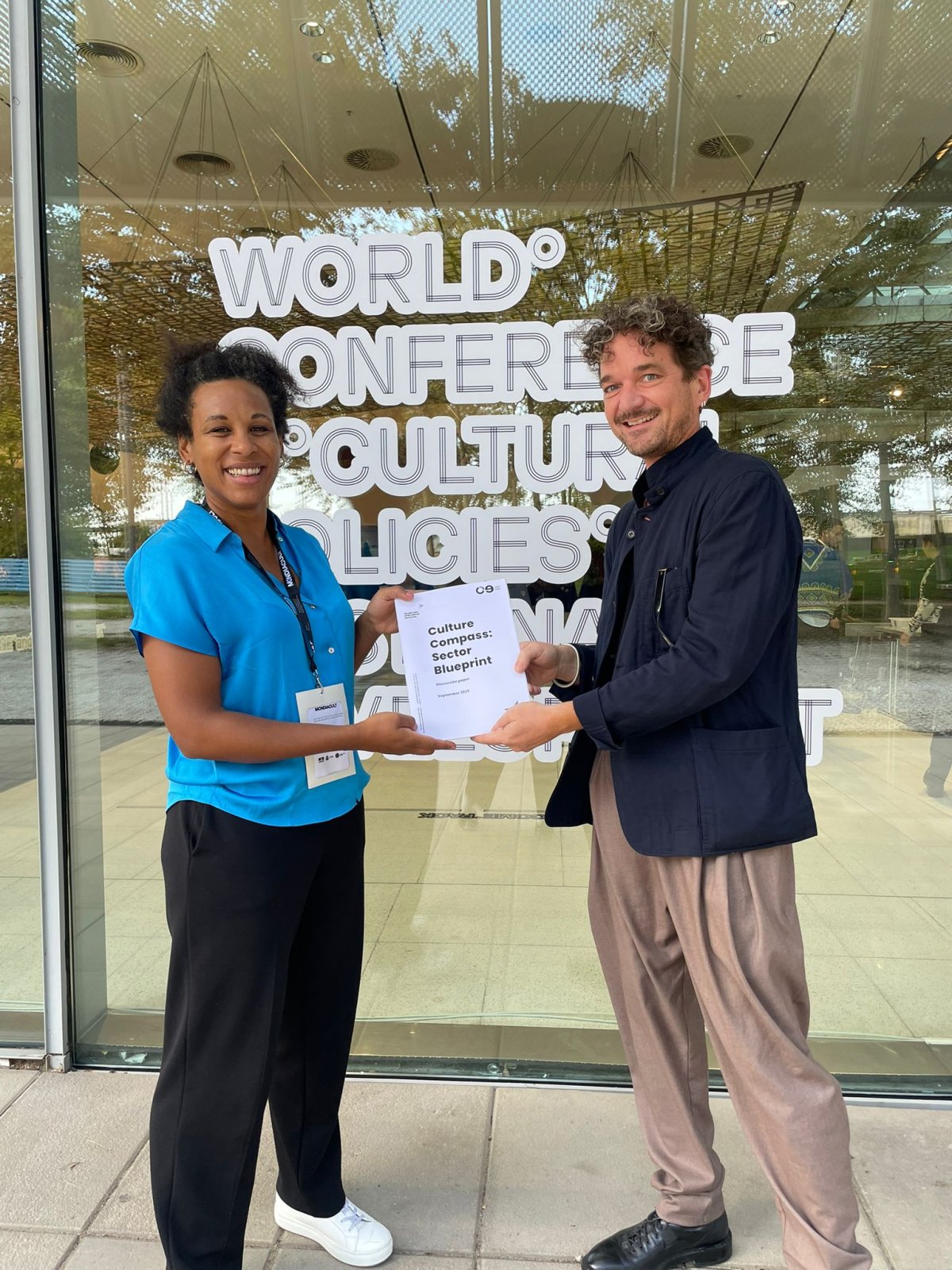
CU: So, the MFF negotiations rest at the heart of next steps from here?
Indeed, as the Blueprint is not only about the Culture Compass. It is about the link between strategy and funding, exploring how the Compass relates with AgoraEU and how to extend culture’s reach to other MFF funding programmes, such as Horizon or structural funds.
The Commission will present the Compass to the Council of Culture Ministers in November and of course, we will react on that, including during an event in the European Parliament in January, together with the Chair of the CULT Committee, Nela Riehl.
The Blueprint boosts our Ask, Pay, Trust the Artist campaign which will be complemented by new letter templates to national ministers responsible for economy, research, regional development and foreign affairs. Our view is not narrowed to AgoraEU but has a rather holistic approach in the political dynamics about to unfold. We want to make sure that our vision for culture uses the hooks in other policy areas, so that we can secure 2% for culture - as we demand with our Cultural Deal for Europe partners - in the proposed MFF. As the negotiations are only at the beginning, and the ambitious plans currently on the table may be attacked by member states who do not agree with the overall MFF proposal, our campaign is ongoing and we will reload our advocacy until the last moment.
CU: Isn’t there an instrumentalisation trade-off when pushing for a transversal integration of culture to other policy areas? Doesn’t this transversal approach come in contradiction with the idea of the intrinsic value of culture, deserving a firm standalone policy area?
Thank you for the very crucial question! We have to be extremely careful not to be instrumentalized. But, at the same time, we have to make the case for the transformative powers of culture.
I firmly believe that we can and that we are instrumental in other policy areas to bring about change; culture and sustainability, greening, culture and health or the digital.
But at the same time, we must always defend -until the end- artistic freedom, freedom of artistic expression and the autonomy of our institutions.
In other words, we have to make sure that the transformative power of culture and art lies in the fact that artists are free! We can not prescribe how to solve specific problems, - and we certainly do not ask artists just because they are cheaper. Of course we ask artists to work with us in all areas, but we pay them properly and we trust their approach. Artists are transformative - and therefore instrumental - to societies through their sheer existence.
When advocating for integrating culture to other EU policy areas, we have to make sure that the transformative power of culture and art lies in the fact that artists are free!
So, I think there is a real difference between instrumentalisation and being instrumental and I think - to use the example of health and well-being - we need money for culture in the health sector, to use the example of research, we need money for artists in the Horizon Europe programme,- and so on.
CU: However, Culture and Creativity was not included in the proposal for Horizon 2028-2034.
It is unacceptable that culture is not already included in the Horizon program for the next MFF. In the current edition it was already not enough, but at least there was a dedicated strand. The arts are an autonomous knowledge domain and artists have their own research methods that might be more difficult to relate to for the more traditional approaches. That's the difference between instrumentalization and trust in artists to do their job on their terms.
CU: What about criticism on the connection of arts and culture with security and Rearm Europe?
First of all I think it's a very valid point of criticism. We should not enter a discussion that contributes to the dynamics of the current war rhetoric without the necessary caution. That's something we need to be very careful of at this crucial moment. At the same time I think we cannot stay out of it.
Culture cannot stay out of any relevant discussions at this moment in time when our civilisation is under attacks from a planet in emergency, geopolitical volatility including wars and digital challenges, including misinformation and attacks on democracies. It comes back to the previous conversation. Should we be instrumental or instrumentalized?
We should not be instrumentalized, also not for a security agenda. But we need to remember that if we want culture to strengthen societal mobilisation and democratic resilience in the face of many hybrid threats, the EU must invest into a sustainable cultural ecosystem and support cultural production. If we talk about the current threats not only in Europe, but on the geopolitical balance of a multilateral peace-based world order -in which we somehow position ourselves, we need to look not necessarily at armed conflict, but what violence in the world does to peaceful societies at home. It is there that we need to look for the role of culture.
When talking about culture and security, we need to look not necessarily at armed conflict, but what violence in the world does to peaceful societies at home.
So, in other words, if I look at cultural policies, in countries that have borders with Russia I see a clear vision on the role of culture. Not so much in terms of defense at the front line, but in what culture does to individual and community wellbeing, the psychological role, misinformation and fake news. And also as a very tangible first response in crisis situations, with museums or theaters as places where communities can meet to take care of themselves.
And these issues are clearly spoken out in the policies of these countries in Europe and not in other countries. I'm not saying we have to do that. I'm saying we cannot look the other way and not talk about it.
Another example comes from the Italian Minister of Culture, who roughly said that for every hundred euros we spend on weapons, we need to spend two euros for culture, to make sure we don't use them.
So, I think we need to open the conversation, and if the Compass is there to position culture in the middle of the bigger policy picture that the European Commission sets out, then the Compass needs to relate to it, security included. Otherwise it doesn't give us the direction on that policy landscape, as a compass claims to do.
CU: Back to the Blueprint. Is it a summary of existing CCS claims, but in a structured way? Are there any novelties?
Among the ten policy briefs, there are new proposals that are not yet there, such as the strategy proposed on international cultural relations (since the 2016 Communication is not really a strategy). Similarly the proposal is on how to strategically use culture to change the narrative on ´greening´ and enhance sustainability actions across society.
One issue I want to highlight is about the EU competence in culture. With all the political upheavals in Europe and in the world, and the crisis of our planet and humanity, we need to elevate culture out of the ‘nitty gritty’ policy discussions and onto the real political level, where the real empowerment happens. As I cannot believe that there is no notion of the significance of culture, I guess that there is simply too much fear that member states would protest bold EU vision on culture as in the EU treaties it is set as a national competence.
We can leave the cultural competence on member states level and at the same time reflect on its European dimension, on European Contemporary Culture.
Now, I firmly believe that we can leave the cultural competence on member states level, so that the subsidiarity principle stays intact, and at the same time reflect on its European dimension, on European Contemporary Culture. We should realise that after all these generations of Creative Europe programmes, all these Capitals of Culture in Europe, all the cross-border collaboration, artistic mobility and content being digital and international, we can make a case for a culture that is supranational, that is a European culture, and that is the competence of the EU as well. This is why we introduced the idea for a year of Contemporary European Culture. We need to raise awareness of the fact that we can liberate ourselves from the limitations of subsidiarity without abandoning the principle.
I think that the Blueprint is an instrument for a strong cultural policy of Europe, that finally makes its way into political ideologies. The fact that Ursula von der Leyen again did not mention culture in her SOTEU2025 speech, is something that we can not allow anymore! How can she speak about the most important thing is the unity of Europe, when we know the Eurobarometer data, that 87% of the citizens of Europe find culture as the most unifying force in Europe?
However, she did start her speech saying in her first sentences that we have to fight for our values, and overall many symbols were there, implying an approach of implicit cultural policy. Would you agree with that and do you see a rise of implicit cultural policy?
Maybe, but it is not helpful. Unity, values, sense of belonging, sentiment were there, but we have to be careful as they can be used by other actors as well.
Human dignity, equality, rule of law, but we need to give them new life for each generation and that happens in the arts, that happens in culture. The Union values are within culture
We need to be very explicit that it’s within culture that the values of the Union are safeguarded. We know what the values are: human dignity, equality, rule of law, etc. but we need to give them new life for each generation and that happens in the arts, that happens in culture.
CU: Why did CAE welcome AgoraEU? It does not keep Creative Europe as a standalone programme and does not provide a 2% of the MFF for culture. There could be voices arguing for a more strict position than a welcoming one.
That’s a very valid point. I think we need to separate the two things. One is how we reacted to the AgoraEU programme, where we did a quite in-depth analysis and we said that it is a good opening gambit. . The Culture strand remained quite visible and autonomous. At the same time, we need to be careful of what happens next. We looked not only at the AgoraEU, but at the total MFF, and there we see that the Commission has managed -I think the Commissioner Micallef has managed- to plant culture hooks in many of the other funding programmes, which enables us now in our lobbying to work on concrete proposals, on how we can really earmark money for culture in other envelopes. So, looking at that I think it is still possible to reach the 2% for culture across all MFF. I didn’t give up on the 2%. We welcome the first proposal but recognise it’s the bare minimum needed for the cultural sector, that’s we’ll continue advocating for more funds for culture in other EU programmes, such as Horizon Europe, the Competitiveness Fund, Global Europe Fund, and National and Regional Partnership Plans.
CU: As we find you now in Barcelona for the proceedings of the MONDIACULT 2025, what are your expectations about achieving Culture as a standalone Sustainable Development Goal (SDG)?
We are not there yet. MONDIACULT 2025 supported it and in a sense positively built on MONDIACULT 2022. We have now a sprint ahead of us, as it is between now and September 2027 when the post 2030 agenda will be set by the UN, that we need to do the real lobby.
There are allies such as India, but there will be significant UN member states, like the US that will make it difficult. Plus, the geopolitical climate until 2027 will make it or break it. But I remain hopeful and full of energy to realise the necessary transformations.
CU: Thank you for sharing your thoughts and insights!
And thank you for the valid questions!
Lars Ebert is Culture Action Europe’s Secretary General. With a focus on advocacy, he engages in an ongoing dialogue with sector representatives and policy makers across the EU. He was co-director of H401 in Amsterdam and deputy director of The European League of Institutes of the Arts. Lars has a specific interest in participatory practices and art-based research. He holds a postgraduate degree in theology, has taught cultural management, publishes regularly and serves on the board of various organisations in the areas of culture, education and research.
Find more about the Sector Blueprint
hereImage 1: Courtesy Cultural Deal for Europe 2025
Images 2 - 4: Courtesy of Culture Action Europe








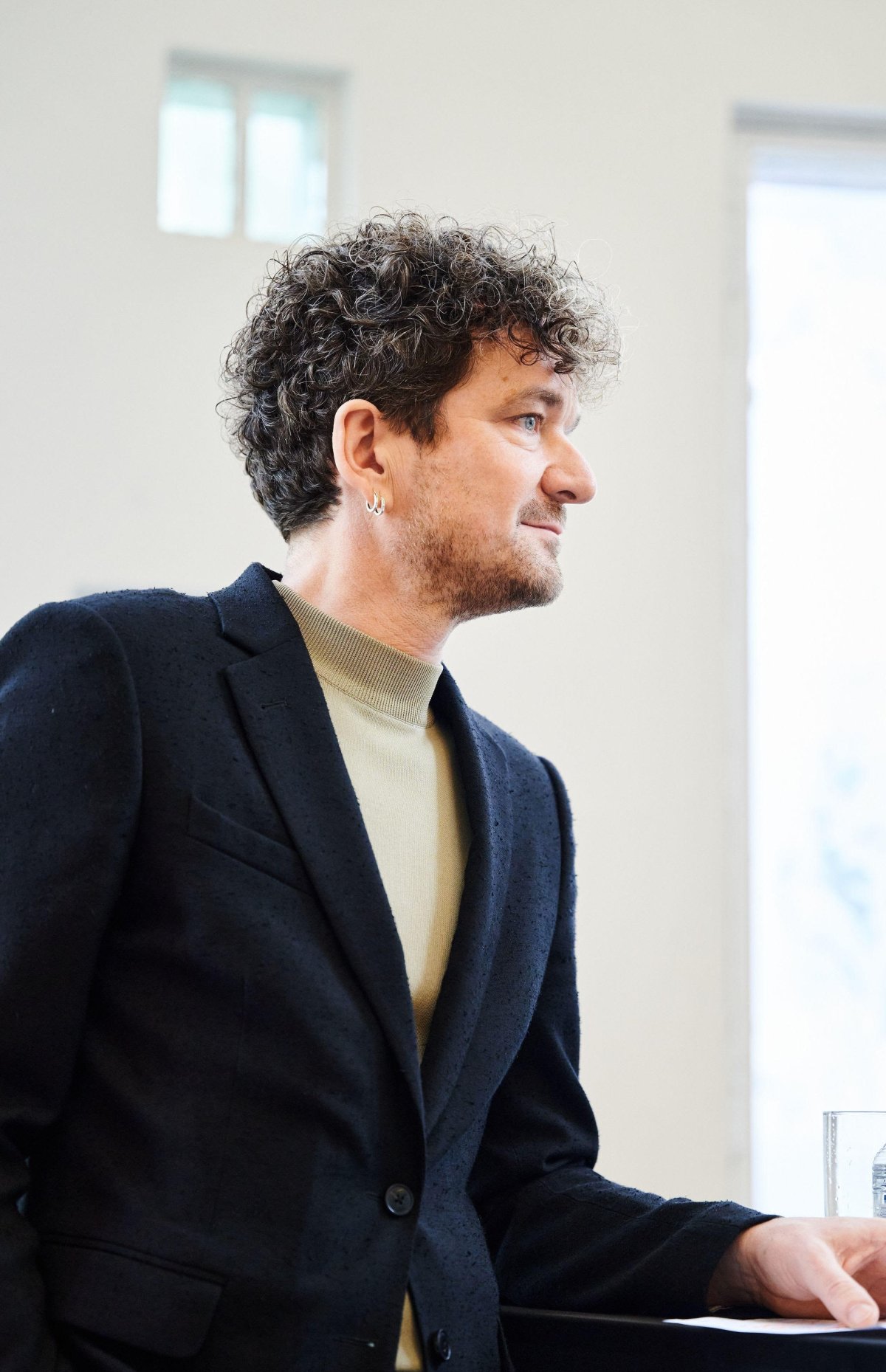
 We came
We came 